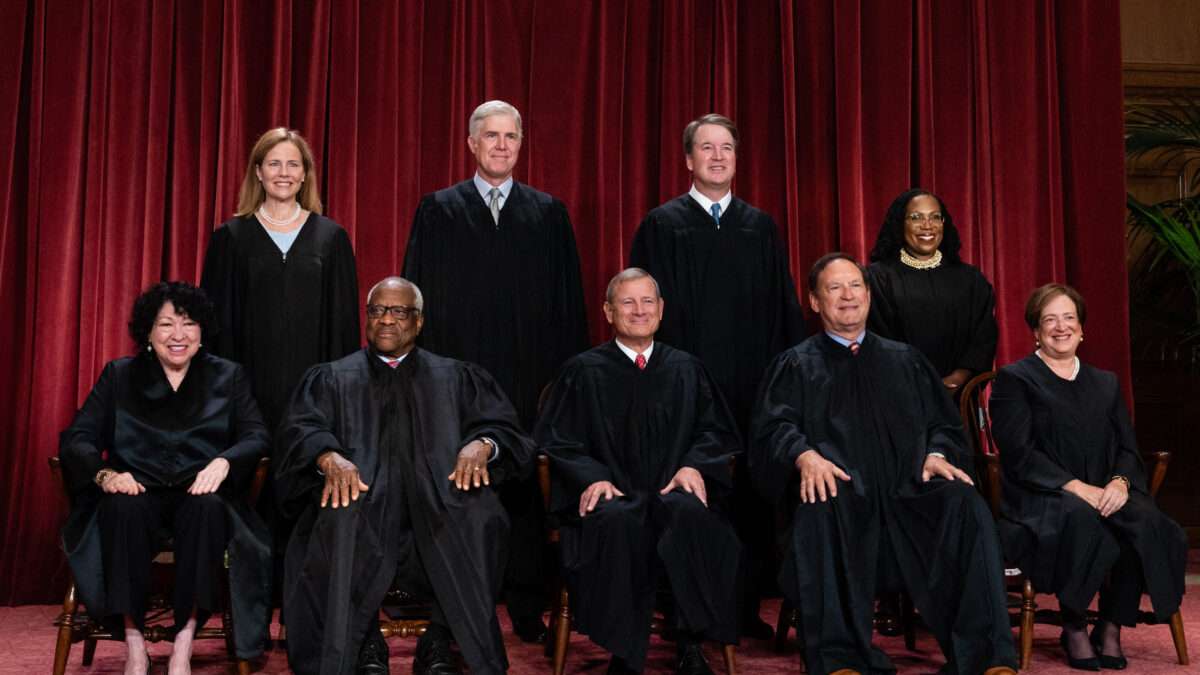Every cop with a dog swears it can detect all sorts of contraband. Literally swears. In court. On the stand.
But are drug dogs miraculous wonders of law enforcement due to their training? Or is it due to the domesticated dog’s innate desire to please, especially when it knows it will be rewarded for doing the thing? Or is it simply responding to cues delivered by its handler, some of which may be subconscious?
Well, it’s probably a combination of all these things. Training does get dogs to respond to certain scents. But the training also turns them into an extension of their handler. And then the dog wants what the cop wants: a reason to perform a warrantless search. Both handler and dog are rewarded in their own way. The dog gets a treat. And the cop gets to perform a trick that allows the officer to bypass the Fourth Amendment. (There’s a reason cops hate actually scientific testing of officers and drug dogs, because once the pair is separated, tons of false positives and negatives tend to be generated.)
For a long time, courts were mostly receptive to the assertions made by officers handling drug dogs. If they said in court that the dog “alerted,” the court generally couldn’t find a good reason to consider this testimony flawed.
But now there are cameras in cop cars and cameras on cops’ chests and cameras in the phones pretty much every driver and passenger possesses. Consequently, these assertions about “alerting” are receiving more scrutiny, as are the dogs themselves, who have shown their ability to reliably detect contraband isn’t all that different than allowing cops to flip a coin to determine whether or not they can pursue a warrantless search.
This case, brought to us by FourthAmendment.com, has a court calling bullshit on a supposed “alert.” A pretextual traffic stop that resulted in the discovery of an illegally possessed weapon relied on a search of a car — a search supposedly prompted by the cop dog on the scene.
The defendant, David Edmonds, was hit with a felony in possession charge following this search. He moved to suppress the evidence, claiming the search of his car wasn’t supported by probable cause or reasonable suspicion, the latter of which is the minimum that officers need to search a vehicle on public roads.
On the way to this warrantless search, the dashcam video submitted as evidence by the government appears to show a bunch of cops breaking traffic laws en route to violating the Fourth Amendment. From the decision [PDF]:
It was daylight. A white sedan traveling on Fifth Street crossed Broadway in front of Trooper Gabriel, proceeding from the trooper’s right to his left. The first unobstructed view of the sedan appears about six seconds into the video. The sedan’s windows are tinted. On the dashcam footage, nothing is visible inside the car. The car is in view for about four seconds before it travels out of the camera’s range.
A pickup truck followed behind the sedan on Fifth Street also traveling in front of Trooper Gabriel. Trooper Gabriel testified at the hearing that the truck was driven by a law enforcement officer. After the truck passed, Trooper Gabriel ran the red light on Broadway and turned left on Fifth Street following the path of the truck and the sedan, cutting off another car going through the intersection. Trooper Gabriel testified on cross-examination that the car he cut off was driven by another law enforcement officer who he had warned by radio.
The area of Fifth Street is a residential area. Trooper Gabriel picked up speed on Fifth Street. He passed a sign stating that the speed limit is 25. He appeared to be traveling well above that. He testified at the hearing that he was traveling about 40-45 miles per hour.
At this point, there were at least three state troopers, driving three different vehicles in pursuit of a white sedan that had not been observed breaking any traffic laws. Trooper Gabriel, however, had not only run a red light, but was driving 20 mph over the posted speed limit.
If this was a pursuit, there was no indication of that. There is nothing on the record that indicates sirens or lights had been activated, which meant all the officers involved were endangering other drivers for the sole purpose of catching up to a car whose driver hadn’t actually broken any laws himself.
The mayhem continued:
The pickup truck traveling behind the sedan pulled over to the side of the road, and Trooper Gabriel passed it. Trooper Gabriel testified on cross examination that the truck was also a law enforcement officer who he had radioed ahead to pull over. At that point, nothing was between the sedan and Trooper Gabriel, who was still speeding down the residential road. As Trooper Gabriel’s vehicle approached closer, the sedan veered slightly to the right toward the curb and stopped on Fifth Street at an intersection with another street. Trooper Gabriel stopped behind the sedan.
Somehow, every car on the road other than the one this trooper was pursuing was another cop. What a coincidence! I’m surprised the court didn’t demand testimony from all the other alleged “officers” Trooper Gabriel endangered while focused on this white sedan.
Trooper Gabriel followed up his lawbreaking and endangerment of other drivers (some who might have been cops!) by doing whatever the fuck this is:
Trooper Gabriel yelled to the sedan driver to turn the car off. The driver, who was defendant Edmonds, stuck his head slightly out of the driver’s side window, looked back at Trooper Gabriel and apparently asked why he was being asked to turn the car off. Trooper Gabriel stated, “because you just whipped over like crazy.” He again instructed Edmonds to turn the car off. Edmonds apparently again asked why, and Trooper Gabriel responded, “Because I said so.”
About 13 seconds after Trooper Gabriel first instructed Edmonds to turn the car off, Edmonds’ brake lights went off. Trooper Gabriel instructed Edmonds multiple times to get out of the car. About eight seconds after Trooper Gabriel first instructed him to, Edmonds got out of the car. Trooper Gabriel instructed Edmonds to walk toward him. Edmonds complied. Another trooper appears on camera at this point walking toward Edmonds’ car.
Those quoted paragraphs immediately follow the previous quoted paragraphs. All of this was captured by the trooper’s dashcam. The court: “the sedan veered slightly to the right.” Trooper Gabriel: “You whipped like crazy.” Hmm.
Already off to a bad start, but apparently surrounded by other troopers with nothing better to do but violate traffic laws en route to performing a traffic stop, Trooper Gabriel then proceeded to claim he “caught” Edmonds “with no seat belt” and again reiterated his claim (one not supported by his dashcam footage) that Edmonds has “freakin’ just like dipped over.” Let’s go back to the court’s earlier depiction of the dashcam recording to see what it has to say about Trooper Gabriel’s assertion that he saw the man driving without a seat belt.
The first unobstructed view of the sedan appears about six seconds into the video. The sedan’s windows are tinted. On the dashcam footage, nothing is visible inside the car.
Folks, this man is a liar. He lied about seeing the seat belt (or lack thereof) and he lied about the whipping/dipping he claimed to have witnessed.
Having apparently traveled as far he could on this particular line of bullshit, the trooper began insinuating that the thing HE DEFINITELY HAD NOT WITNESSED were indicative of a nervous driver seeking to avoid a traffic stop and/or cover up their possession of contraband.
Since the trooper really had nothing to work with here, he decided to bring in a dog to give him the probable cause he couldn’t possibly hope to obtain on his own. Trooper Gabriel took the dog from his vehicle and walked it around Edmond’s car.
This is what happened:
The dog, whose name is Dragon, appears to follow Trooper Gabriel’s hand. When Trooper Gabriel places his hand in the open driver’s side window, the dog jumps onto the driver’s side door and sticks his head in the window.
Trooper Gabriel then led Dragon all the way around the vehicle until the trooper and the dog returned to the driver’s side door again. At the driver’s side door, Trooper Gabriel told Dragon, “I’m not going to give you your ball . . . You’re going to have to . . . .” Trooper Gabriel then walked back to the state police vehicle, with Dragon leading the way. Trooper Gabriel returned to Edmonds and explained that Dragon does “a passive alert on a vehicle.” Trooper Gabriel stated, “That means he will either sit, or stare, or freeze if he has an indication that there is an odor of narcotics in the vehicle.” Trooper Gabriel stated that Dragon is “right on your driver’s side door handle.”
Edmonds stated, “I didn’t see him do nothing. . . what do they do?” Trooper Gabriel responded, “I just told you.”
Oh, so it’s a new type of alert: the one where the dog doesn’t do much, even when encouraged to do something, anything by its handler. My dog smelled drugs, said the lying state trooper.
Here’s what actually happened:
The officers then searched Edmonds’ car. They found no narcotics…
But they found a gun! And Edmonds was not allowed to have one. The trooper lucked into this discovery by lying about what he had observed prior to the stop, and what the dog had actually done when it performed its sniff.
As for all the whipping and dipping, this is what the court observed thanks to the dashcam footage supplied by the government:
As to his driving, Edmonds’ pulling off to the side of the road seemed a rational response for a driver when a marked law enforcement vehicle is approaching the driver’s vehicle from the rear at a high rate of speed in a residential area, and the vehicle behind the driver has already pulled to the side of the road so that the law enforcement officer could pass him. And, on the dashcam footage, Edmonds appeared to pull over to the side of the road in a reasonable manner…
The government’s response to the suppression motion claimed Trooper Gabriel was “concerned” about Edmonds’ “driving pattern.” Then it claimed the stop was supported by Gabriel’s claim he witnessed Edmonds driving without a seat belt.
Fine, says the court. Have it your way. If the driving wasn’t unlawful, let’s make this all about a seat belt violation. The court goes on to criticize everything about the government’s arguments, as well as everything about the trooper’s actions. And that includes the dog that supposedly gave him permission for a warrantless search of the car.
It first notes that no real traffic stop was performed. Edmonds was not pulled over. Trooper Gabriel never activated his lights or siren. Instead, he just started yelling at Edmonds after he had voluntarily stopped and then began the string of rights violations by ordering him to turn off his car and exit his vehicle.
Even then, it was all bullshit. The court notes that Trooper Gabriel maintained the seal belt violation pretense until redirect under cross examination by Edmonds’ lawyer. At that point, he admitted he had seen the car pass through a “high narcotics” area he was surveilling. Everything was pretext and the trooper obviously hoped to net a drug bust.
Which would explain why he brought out the dog and pretended it had alerted to the scent of narcotics. The court has some things to say about the performance of “Dragon” and the even less-believable performance of Trooper Gabriel.
Going back to what Trooper Gabriel told Edmonds about the supposed alert before he began his constitutional search:
Trooper Gabriel returned to Edmonds and explained that Dragon does “a passive alert on a vehicle.” Trooper Gabriel stated, “That means he will either sit, or stare, or freeze if he has an indication that there is an odor of narcotics in the vehicle.”
The trooper either lied to Edmonds or lied to the court. Actually, it’s not an “either” situation. He lied to both parties. Here’s what happened when the trooper was subjected to cross-examination while testifying:
At the hearing, Trooper Gabriel conceded that Dragon did not sit, stare, or freeze while sniffing Edmonds’ car. He testified, however, that is not actually how Dragon alerts. Instead, Trooper Gabriel testified, the dog alerts by changing his posture and increasing his respiration. He testified the dog’s actions of sitting, staring, or freezing are not an “alert” but rather a “final indication.”
lolwut
The dog alerts by breathing or moving, if it isn’t alerting by sitting, staring, or [re-reads testimony] not moving.
The court isn’t having this. If the court gave this testimony credence, the fact that the dog was present on the scene of any traffic stop and did literally anything (including sitting passively in the trooper’s cruiser), it would be “alerting,” thus “justifying” a warrantless search.
Rather than give this ridiculous cop more leash than he gives his dog, the court shuts this all down, referring to nothing more than the evidence submitted by the government in support (lol!) of this search and arrest.
The Court has viewed the dashcam and bodycam footage numerous times. The Court can discern no difference in the dog’s posture or respiration when he arrives at the driver’s side of the car for the second time, which is when he allegedly alerted. There is no visible change in his rate of respiration. Throughout the sniff of the car, Dragon followed Trooper Gabriel’s hand. He does not ever attempt to walk past Trooper Gabriel. When Trooper Gabriel moves, Dragon follows. When Trooper Gabriel stops, Dragon stops. This is Dragon’s conduct throughout the dog sniff. The only time Dragon walked ahead of Trooper Gabriel was when Dragon walked to the curb after first being released from his crate and then after Dragon completed the drug sniff and headed back to the state trooper vehicle.
The evidence is suppressed. The search was unjustified. Trooper Gabriel is a liar.
The strange thing is the government felt this was worth pursuing in court. Its actions exposed the trooper’s unconstitutional behavior, which began before the traffic stop (that wasn’t even a real traffic stop) was initiated (by the sedan’s driver, rather than the officer). The government had access to the dashcam footage and somehow decided it could get this suppression motion rejected.
That’s the saddest thing of all. When Trooper Gabriel’s employers should have been putting together paperwork to get him drummed out the law enforcement business, it was instead putting its efforts behind an effort that embarrassed everyone involved, including the dog that wanted nothing more than make sure Trooper Gabriel approved of its performance.






